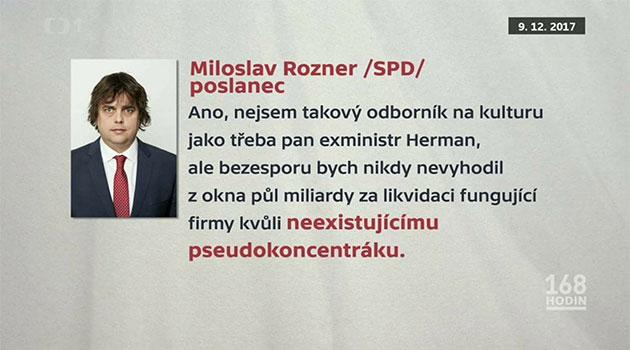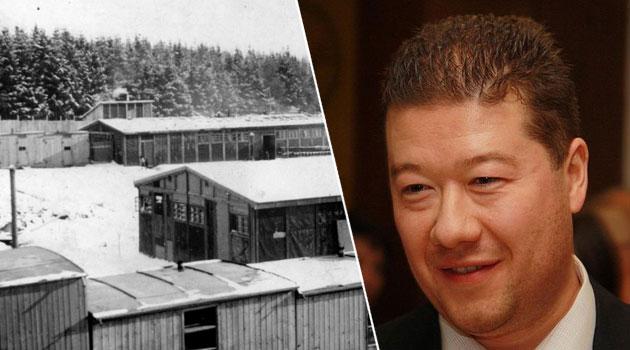Czech Police ask lower house to lift immunity on MP who called Romani genocide site a "non-existing pseudo-concentration camp"

The Czech Police have asked the Chamber of Deputies to lift the immunity on prosecution for MP Miloslav Rozner (Freedom and Direct Democracy – SPD) because of remarks he made about the WWII-era camp used to imprison Romani people at Lety u Písku prior to their deportations to Auschwitz. The information, published by the daily Právo, was confirmed to the Czech News Agency by the chair of the Immunity and Mandate Committee in the lower house, MP Stanislav Grospič (Communist Party of Bohemia and Moravia – KSČM).
That committee is scheduled to review the request on Tuesday, 18 December. The SPD has issued a statement alleging that the state prosecutor’s intervention into the case shows signs of “activism” and raises questions as to the objectivity of the investigation, adding that SPD members of the lower house will be voting against lifting Rozner’s immunity.
Grospič said basic procedural matters would be reviewed at the committee meeting, which would decide what to do next. “I assume the committee will want to undertake standard steps,” the chair said.
Apparently that means the committee will summon the detectives and state prosecutor making the request for further meetings. Rozner will get an opportunity to express his views on the matter.
Because Rozner is a member of the Immunity Committee itself, though, Grospič says he will not be allowed to attend or vote on the session about himself. The full plenary of the lower house could make a decision about the police request during their January session.
Rozner used the phrase “non-existing pseudo-concentration camp” when criticizing the decision by the previous Government to buy the pig farm previously located at the remembrance site at Lety. Several criminal reports about his remarks were immediately filed against him and also against the chair of the SPD, MP Tomio Okamura, for similar remarks.
Police want Rozner prosecuted, according to the daily Právo, on suspicion of denying, doubting, approving of and justifying genocide. The initial criminal reports about Rozner’s and Okamura’s remarks were shelved by police.
The state prosecutor returned Rozner’s case to them and re-opened the investigation. “The intervention of the state prosecutor into the case shows signs of activism and raises questions as to the objectivity of the investigation of the entire case,” the SPD said in a press release.
Rozner, in the view of his fellow SPD members, did not doubt the suffering of the people who were in the camp, but cast doubt on “spending astronomical sums of money to buy the pig farm”, which is in accordance with the SPD’s opinion on the issue. “The MPs of our club will vote against lifting their colleague’s immunity,” the SPD statement reads.
According to historians, the location in Lety was first used in 1940 as a disciplinary labor camp for men who were unable to document their sources of income to the authorities. Persons living itinerantly were also meant to end up in the camp at at that time.
A minimum of Romani inmates are said to have been interred there at that time. Then, in 1942, the camp was changed into an internment camp for Romani people prior to their deportation to other concentration camps.
A total of 1 308 Romani children, men and women passed through the camp, 327 of whom died there and more than 500 of whom ended up in Auschwitz. According to expert assessments, 90 % of the Romani people indigenous to Bohemia and Moravia were murdered by the Nazis.
